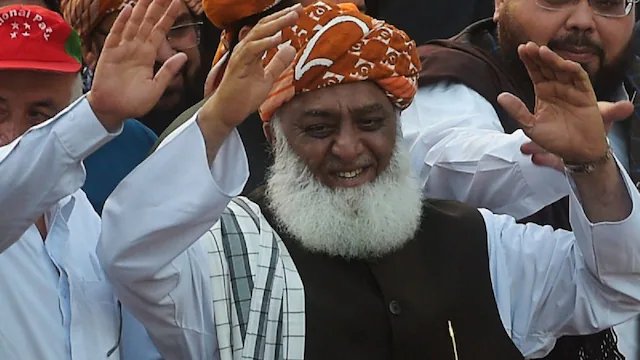In a recent National Assembly session, JUI-F chief Maulana Fazlur Rehman issued a grave warning about the future of Pakistan’s territorial integrity. The session, which was dominated by debates on five new bills related to human trafficking and organized begging, took a sharp turn when Fazlur Rehman took the floor to address national security concerns. His comments about Balochistan and the state’s weakening authority have caused a stir in the political landscape.
Fazlur Rehman’s Warning on Balochistan’s Independence
Maulana Fazlur Rehman’s speech focused heavily on the increasing lack of state control in Balochistan, Khyber Pakhtunkhwa (KP), and the newly merged tribal districts. He cautioned that 5-7 districts in Balochistan were on the verge of declaring independence. If this happens, he predicted, the international community, including the United Nations, would recognize these territories immediately. The JUI-F leader claimed that armed groups in these regions were gaining strength, with the government unable to assert authority.
Rehman’s warning about Balochistan comes amid a backdrop of rising violence in the region. Recently, Pakistan lost four Frontier Corps soldiers in an attack in Balochistan. The situation has escalated, with separatist groups demanding more autonomy. Fazlur Rehman pointed out that the central government had failed to effectively address these issues, leaving the region vulnerable to both internal and external threats.
Absence of State Authority in Key Regions
Fazlur Rehman further highlighted the absence of state authority not only in Balochistan but also in KP. He noted that police checkpoints had been abandoned, and armed groups had seized control of several areas in southern KP. He emphasized that the state had effectively lost its grip on these regions, leaving a vacuum that armed factions were quick to fill.
Rehman criticized the government for its lack of action in these troubled areas. He claimed that Prime Minister Shehbaz Sharif had no understanding of the gravity of the situation in the tribal regions. The JUI-F leader also accused the government of being a mere rubber stamp, with critical decisions being made outside of the parliamentary process by unelected individuals.
Geopolitical Ramifications and International Concerns
Rehman’s remarks were not limited to internal political issues. He warned that prolonged instability in Balochistan and KP could have significant geopolitical consequences. According to Rehman, the continued border conflicts could lead to “geographical changes,” altering the map of the region. The JUI-F leader even speculated that international powers, particularly the United States, could take an interest in Pakistan’s tribal areas if the situation worsened.
Rehman’s rhetoric was sharp as he compared the situation to the global attention on the Gaza Strip, suggesting that global powers might one day intervene in Pakistan’s internal affairs. He also raised alarms about Pakistan’s nuclear and missile programs, fearing that international forces might target these strategic assets.
Criticism of Government’s Relationship with IMF
The JUI-F chief also criticized the government’s handling of its relationship with the International Monetary Fund (IMF). He took issue with reports that IMF representatives had met with members of Pakistan’s judiciary and legal community, suggesting that this was a sign of foreign influence over the country’s internal affairs. Rehman called for the restoration of civilian rule and greater parliamentary autonomy in decision-making processes.
Despite his harsh criticism, Rehman offered to cooperate with the government, but only on the condition that it fully restored civilian control and stopped allowing external entities to dictate domestic policy.
A Call for Immediate Action
Maulana Fazlur Rehman’s speech is a stark reminder of the challenges facing Pakistan, particularly in its restive regions like Balochistan. The state’s weakening authority, combined with rising violence and separatist movements, threatens the country’s unity. If the government fails to address these issues, Rehman’s warning about potential independence declarations in Balochistan may come to fruition. The international community, too, is closely watching Pakistan’s internal struggles, with significant implications for its geopolitical standing.
Related Stories:
Political Parties In Balochistan Urged To Put Women In Top Roles
Balochistan: A Region in Crisis Amidst Human Rights Violations
Enforced Disappearances in Balochistan: A Long-standing Crisis
















